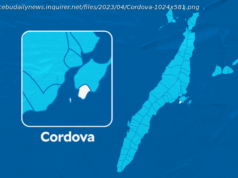When out-of-town or even local motorists lose GPS connections, the confusion can trigger accidents and traffic congestion.
Motorists will have an easier time navigating the byzantine bowels of Lower Wacker Drive, Lower Columbus Drive and Lower Michigan Ave., thanks to an innovative partnership between the city and a pair of tech companies.
City Hall is joining forces with Waze and Chicago-based SpotHero to install at least 400 so-called “Waze Beacons” devices that deliver “Bluetooth-enabled connectivity” in areas where GPS signals can’t reach.
That means “underground signal blackouts” in 5 miles of multi-level streets could end just in time for Labor Day weekend.
The Chicago Department of Transportation started installing the beacons on Monday. All 400 beacons should be installed by Thursday.
The beacons, to be owned by CDOT, emit a signal that can aid navigation apps like Waze. But they are open and free to be used by any other navigation app.
The 2-inch-by-2-inch beacons have a battery that’s expected to last five years. They are being “stuck onto” walls and other infrastructure and installed roughly 200 feet apart. They’re roughly 20 feet above ground and “out of reach for anybody walking by,” officials said.
CDOT spokesman Mike Claffey said the partnership between Chicago-based SpotHero and Israel-based Waze was forged during Mayor Rahm Emanuel’s trade mission to Israel. SpotHero co-founder and CEO Mark Lawrence was part of the delegation.
“SpotHero customers had a problem because, if there’s an entrance to a garage underground, drivers can’t get there. GPS navigation cuts out when you’re in an underground location. You would be lost underground,” Claffey said.
“While they were in Israel, the mayor connected SpotHero with Waze engineer Gil Disatnik. He’s like the guru of these beacons,” Claffey said. “As a result of the two firms getting connected, SpotHero purchased the beacons from Waze and donated to the city of Chicago 500 of these beacons. We’re installing 400 initially, but we can put in more if we need to.”
When out-of-town or even local motorists lose GPS connections, the confusion can trigger accidents and traffic congestion.
That’s what happened to Disatnik in 2014. While driving through a Boston tunnel, he lost his GPS signal and missed the turn to the airport.
The aggravating episode triggered a two-year search for a technological solution that gave birth to Waze Beacons.
More than 3,000 Waze beacons have since been installed on 46 miles of roads and tunnels around the world, including Brazil, France, Italy Israel and the Czech Republic.
Chicago would join Boston and Pittsburgh among only a handful of U. S. cities using the technology.
Chicago-based SpotHero is an app touted for its ability to connect motorists with the “largest network of off-street parking in North America.” Like Uber and Lyft, motorists use their cellphones to reserve and pay for parking spaces in congested areas.
Waze is a Google-owned platform touted for the partnerships it forges with municipalities and mass transit authorities to reduce traffic congestion. The app “empowers communities to contribute road data, edit Waze maps and carpool” to improve mobility.
“For SpotHero, their customers can now reach these garages with underground entrances that they wouldn’t be able to reach without this underground navigation system provided by the beacons developed by Waze,” Claffey said.
“Waze picks up signals from vehicles to develop navigation and get traffic jam information for travel times. What they get out of it is more accurate information.”






